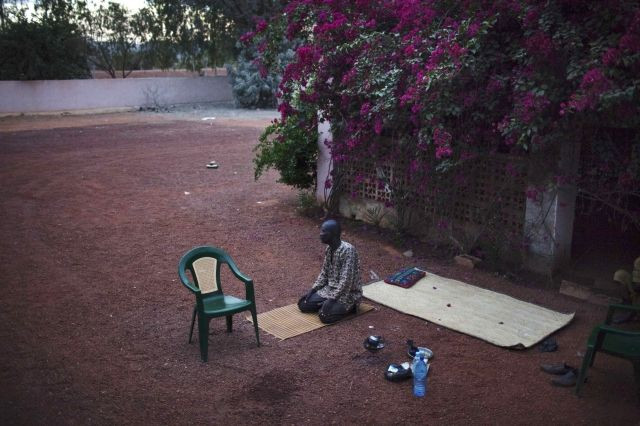Mali Opposition Declares Truce Ahead Of Regional Talks
Mali's political opposition said it would halt protests in a "truce" ahead of the upcoming Eid festival, as four West African presidents prepare to travel to the country this week for mediation talks to try and resolve a deepening crisis.
President Ibrahim Boubacar Keita has been locked in a standoff for weeks with the opposition June 5 Movement, and the conflict spiralled into violent clashes earlier this month, leaving nearly a dozen people dead.
Opposition figures have been tapping into a wellspring of anger over the president's perceived failures in tackling the dire economy, corruption and an eight-year jihadist conflict.
The leaders of Ivory Coast, Ghana, Senegal and Niger will fly to the capital Bamako for talks on Thursday regarding the impasse, according to a Malian presidency official.
Nouhoun Sarr, one of the protest movement leaders, told AFP overnight Monday to Tuesday that the opposition has "decided to observe a truce on the subject of civil disobedience. This is to allow Malians to properly prepare for and celebrate Eid."
"During this period, there will be no more demonstrations. And as you also know, we are preparing to host the heads of state," he said.
The Muslim Eid al-Adha festival of animal sacrifice will begin at the end of the month and lasts for several days.
Issa Kaou Djim, another protest movement figure, said the truce was a "very responsible and wise decision".
But the opposition did not soften its demands, issuing a statement on Monday evening that again called for the resignation of Keita and his regime.
Thursday's talks follow on the heels of a mediation mission from the West Africa bloc ECOWAS, which ended Sunday after failing to reconcile the president with the opposition.
Among other grievances, many Malians are incensed at the outcome of long-delayed parliamentary elections in March and April that handed victory to Keita's party.
But the current crisis came to a head on July 10, after an anti-Keita rally organised by the June 5 Movement turned violent.

Protesters blocked key bridges in Bamako, stormed the premises of the state broadcaster, and attacked the parliament.
Three days of clashes between protesters and security forces followed, leaving 11 dead and 158 injured, according to an official tally, in the worst political unrest Mali had seen in years.
The ECOWAS mission on Sunday suggested the formation of a new unity government including opposition members, as well as the appointment of new judges to the constitutional court who could potentially re-examine disputed election results.
But the June 5 Movement had earlier rejected any outcome that does not include Keita's departure -- a demand opposition leaders have insisted on for weeks.
The movement is a disparate alliance of political, social and civil society leaders gathered around powerful imam Mahmoud Dicko, who is seen as its de facto leader, though he is not a formal member.
Mali's neighbours and international allies are anxious to avoid a slide into chaos in the poor Sahel nation of some 20 million people.
The former French colony has been struggling to contain a jihadist insurgency that first emerged in the north in 2012 before spreading to the centre.
Thousands of soldiers and civilians have died in the conflict, and hundreds of thousands of people have been driven from their homes.
Keita, who came to power in 2013, has been under increasing pressure to stop the fighting.
But much of the current tension in Mali was sparked in April, when the constitutional court tossed out 31 results from the parliamentary elections, sparking protests.
ECOWAS mediators had also said Sunday that they would set up a technical committee to oversee their recommendations, suggesting that talks between the warring parties may continue.
Dicko met the French, US and European Union ambassadors on Monday and told them that the way the country is run must radically change, according to participants in the meeting.
© Copyright AFP 2024. All rights reserved.





















